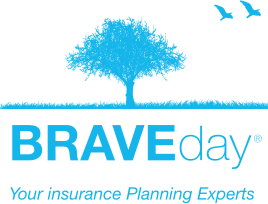I recently starting making more of an effort to eat healthy food and along the way have noticed that there are some foods that you think are healthy choices, but in reality they aren't. I have put together a list of 10 foods that you either need to eat in moderation, or avoid altogether:
1. Nuts: are high in fat. I was surprised when I read the back of the packet that a serving size for nuts was only 25g. I measured this out and it equates to only a small handful of nuts. So, while nuts are good for you, be careful not to eat too many as they are not good for the waistline.
2. Yoghurt: can be high in fat and sugar. Although a good source of calcium, full fat yoghurt is high in fat and depending on what flavour you choose can also be high in sugar. When eating yoghurt the best option is to choose a low fat option, that way you still get all the benefits without all the sugar and fat.
3. Cereals: can be made with highly refined grains which retain few nutrients and are loaded with sugar. Breakfast is the most important meal of the day so make sure you read the nutritional information to find a cereal that is low in fat, sugar and salt and high in fibre.
4. Sushi: can be high in fat and sodium. The main thing to be careful of when eating sushi is not to add too much soy sauce as this is full of salt. Also be careful of the fillings in the sushi you choose, stay away from fillings that have been deep fried. Don't forget that the main ingredient of sushi is white rice so make sure you have sushi as a meal, rather than a snack and be aware of how many pieces you are actually eating.
5. Fruit Juice: is full of sugar. Even if fruit juice does not include any added sugar, the natural sugar levels are high. You are better off to eat a piece of fruit, as it is not only lower in fat but the fibre fills you up for longer.
6. Canned Fish: such as tuna or salmon are good protein choices and can even include Omega 3, but make sure you choose the ones in spring water or brine as those in oil can be high in fat.
7. 'Low Fat' Foods: just because a food is low in fat, does not mean that it is low in sugar or salt. In saying that, not all 'low fat' or 'fat free' foods should be avoided. Some 'low fat' foods can be really good for you, such as reduced fat dairy products. Just keep in mind that if it sounds too good to be true, then it probably is.
8. Muesli Bars: can be full of sugar. Some muesli bars can contain as much sugar as biscuits, so make sure you read the nutritional information to find one that is low in fat and sugar.
9. Olive Oil: is still oil and is high in fat. Although it is better for you than butter or some other oils, it doesn't mean you can add lots of it. Again moderation is the key.
10. Crackers: can be high in fat and salt. It is important when choosing crackers to read the nutritional information so that you can choose a cracker that is lower in fat and salt. It is also important to read the potion size, in some cases this may be only 2-3 crackers.

My advice is to read the ingredients on the back of the packet to make sure you know what you are eating - remember that ingredients are listed in order, so if sugar comes first, that is what you are eating most of. Also check out the serving size, if you have a 100g packet but a serving size is 25g, then split it into 5 smaller packets so you don't overeat. And lastly, you can have a treat, but consider it a "sometimes" food, not an "everyday" food.

